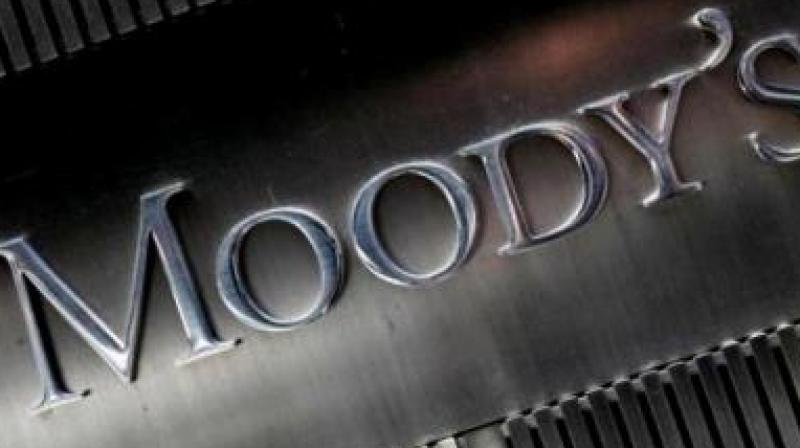Budget shows resolve for fiscal prudence: Moody's

New Delhi: Acknowledging India's resolve to stick to fiscal consolidation road map as laid out in the 2017-18 Budget, Moody's today flagged "hurdles" to the revenue collection target.
The rating agency also expressed concern over the budgeting of lesser capital -- Rs 10,000 crore -- for infusion into public sector banks in 2017-18, which it said is a "credit negative".
The government has budgeted for a lower fiscal deficit at 3.2 per cent of GDP next fiscal and 3 per cent in 2018-19.
"Moody's expects the government to achieve its targets, based on achievable budget assumptions and demonstrated commitment to fiscal prudence, but also note that spending commitments are significant and structural hurdles to rapid increases in revenue collection are apparent," Moody's Investors Service said.
The government hopes to collect over Rs 19.06 lakh crore from taxes next fiscal. Of this, Rs 9.80 lakh crore are estimated to come from direct taxes and Rs 9.26 lakh crore from indirect taxes.
In a report titled 'Budget continues gradual fiscal consolidation, targeted public investment', Moody's said the budget provides modest economic support to low-income households, benefits the infrastructure sector with a boost in public spending and is generally supportive for business with its lower tax rates for micro enterprises and MSMEs.
"The merger of the previously separate Railway Budget and Union Budget and removal of the designation of Plan and non-Plan spending should improve Budget transparency and support the effectiveness of spending and revenue planning, moving forward," Moody's said.
The fiscal deficit target, it said, implies gradual medium-term fiscal consolidation, driven largely by higher nominal GDP growth and bolstered by improvements in revenue collection.
"High and sustainable nominal GDP growth will depend on the recovery of the private investment cycle, which in turn will be contingent on the successful implementation of current and future reforms," Moody's said.
However, state deficits -- which have risen steadily to about 3 per cent of GDP at present from around 2 per cent in 2011-12 -- could widen, potentially resulting in a higher overall general government deficit than expected, it said.
"Uncertainty surrounding the final impact of demonetisation and the pending goods and services tax (GST) on state revenues, combined with increases in total expenditure for government employees, point to a risk of fiscal slippage," Moody's said.
On the Rs 10,000 crore capital infusion plan in PSU banks, Moody's said "at a time when capital level remains precarious and market access to external capital difficult, this is a credit negative for public sector banks".
However, lack of a clear resolution mechanism is also credit negative for the sovereign, Moody's pointed out. The Rs 25,000-crore allocation for fuel subsidies is sufficient based on current oil prices, it added.
"This is credit positive for state-owned oil and gas companies as it implies that the government will not ask them to share the burden. The authorities are also mulling merging state-owned oil companies, which would ultimately be an overall positive," it said.
The planned increase in public infrastructure spending is credit positive for companies in this sector. It could also help address infrastructure constraints and support future private investment, it said.
Moreover, the Budget is positive overall for business. It has halved income tax rates for lower-income individuals and lowered the tax rate for micro, and small- and medium-sized enterprises to 25 per cent from 30 per cent, Moody's said.

